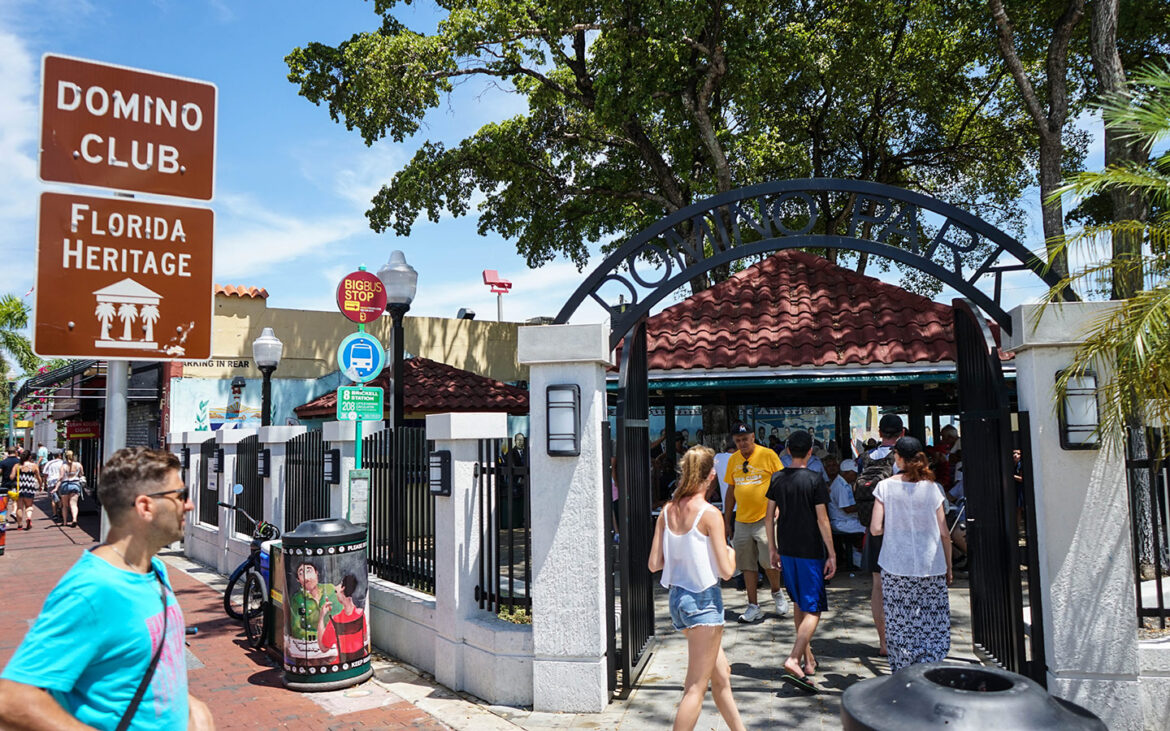Miami’s Iconic Little Havana Celebrates Historic UNESCO World Heritage Designation
June 14, 2024 – Miami, FL – In a significant milestone for cultural preservation, the vibrant neighborhood of Little Havana in Miami has officially received designation as a UNESCO World Heritage Site. This landmark achievement marks an unprecedented moment as it is the first time a neighborhood in the United States has attained such a prestigious global recognition. The announcement was made during a ceremony in Paris and has ignited celebrations throughout the community, renowned for its rich Cuban heritage, colorful architecture, and dynamic cultural scene.
Journey to Recognition
The recognition of Little Havana came after a longstanding campaign spearheaded by a coalition of local historians, artists, and political leaders. These advocates meticulously emphasized the neighborhood’s unique contributions not only to American culture but to global culture at large. Numerous iconic landmarks within the area, including Calle Ocho, Domino Park, and The Tower Theater, were highlighted for their historical and cultural significance. Each landmark represents a facet of the lived experiences of the community, celebrating its heritage and ongoing narrative.
Congresswoman María Elvira Salazar, a vocal advocate for the preservation efforts in Little Havana, expressed her excitement during the announcement. “This is a proud day for Miami, for Cuban-Americans, and for lovers of culture everywhere,” she stated. “This designation ensures that the stories, struggles, and triumphs of our community will be remembered and celebrated for generations to come.” It is this sentiment that reverberates through the streets of Little Havana, underscoring the collective pride of its residents.
Impact and Concerns
The UNESCO designation is anticipated to have a substantial impact on Little Havana, particularly in terms of tourism and funding for preservation projects. Increased global attention is likely to draw countless visitors to the area, eager to experience its vibrant culture and rich history firsthand. However, this newfound recognition also raises significant concerns among local residents. Many are apprehensive about the potential for gentrification and the rising cost of living, as the increased attention may transform the neighborhood in ways that could threaten its affordability and intrinsic character.
Preservation Initiatives
In light of these concerns, Miami Mayor Daniella Levine Cava has announced a series of preservation initiatives aimed at protecting the neighborhood’s cultural integrity. Proposed measures include the introduction of zoning protections and various affordable housing initiatives, designed to maintain accessibility for current residents and preserve the unique character of Little Havana. “This designation is not just a celebration—it’s a commitment to protect the soul of Little Havana,” Levine Cava emphasized during a recent press conference, signaling local government’s dedication to safeguarding the community’s heritage.
The Spirit of Little Havana
UNESCO’s recognition of Little Havana serves to underscore the neighborhood’s position as a living cultural museum. The defining features of this area include the resonating sounds of salsa music, the inviting aroma of fresh Cuban coffee, and the spirited domino games taking place at Máximo Gómez Park. Each of these elements reflects the vibrant personality of Little Havana, showcasing the dynamic and communal lifestyle of its residents. This designation is as much a celebration of the past as it is a commitment to future generations.
A Beacon of Cultural Pride
As Miami gears up for the global spotlight following this announcement, Little Havana stands as a testament to the resilience and creativity of its community. The UNESCO designation not only enhances Little Havana’s profile on the world stage but also affirms the cultural pride of its people. It holds the potential to foster a deeper appreciation for the significant contributions of Cuban-American culture in shaping the broader narrative of Miami and the United States.
Conclusion
The designation of Little Havana as a UNESCO World Heritage Site marks a pivotal moment in the cultural landscape of Miami, celebrating the rich heritage and vibrant spirit of its community. While this recognition opens doors to new opportunities and funding for preservation, it also necessitates thoughtful planning to ensure that the neighborhood doesn’t lose its unique charm and accessibility. As the surrounding conversations about tourism and preservation continue, the story of Little Havana is set to thrive, echoing the voices of its passionate residents for generations to come.
FAQs
What is UNESCO World Heritage Site designation?
UNESCO World Heritage Site designation is an acknowledgment by the United Nations Educational, Scientific and Cultural Organization that a specific site has outstanding universal value and is worthy of international preservation for its cultural, historical, scientific, or other forms of significance.
Why was Little Havana designated as a World Heritage Site?
Little Havana was designated as a UNESCO World Heritage Site due to its rich Cuban heritage, vibrant cultural scene, and significant contributions to American and global culture, marked by its unique landmarks and community history.
What measures are being taken to prevent gentrification in Little Havana?
The city officials, led by Mayor Daniella Levine Cava, have announced initiatives focused on zoning protections and affordable housing projects aimed at preserving the character of Little Havana while protecting current residents from rising living costs.
How will this designation affect tourism in Little Havana?
The UNESCO designation is expected to boost tourism as it draws global attention to Little Havana, providing visitors with an opportunity to experience its culture and heritage. This increase in tourism is paired with opportunities for funding preservation efforts in the area.
What can visitors expect to experience in Little Havana?
Visitors to Little Havana can immerse themselves in a dynamic cultural experience that includes enjoying authentic Cuban cuisine, listening to live salsa music, participating in domino games at local parks, and exploring iconic landmarks that tell the rich history of the community.

